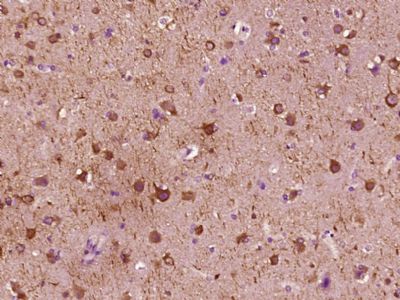Specific References (5) | SLM33073M has been referenced in 5 publications.
[IF=3.382] Wang TH et al. Fisetin Exerts Antioxidant and Neuroprotective Effects in Multiple Mutant hSOD1 Models of Amyotrophic Lateral Sclerosis by Activating ERK. Neuroscience. 2018 May 21;379:152-166. IF ; Mouse.
[IF=3.536] Zhang,et al.Effects of C1 inhibitor on endothelial cell activation in a rat hind limb ischemia-reperfusion injury model.(2018) Journal of Vascular Surgery. :. IF(IHSLCF) ; Rat.
[IF=2.401] Jie Wang . et al. BDNF-overexpressing human umbilical cord mesenchymal stem cell-derived motor neurons improve motor function and prolong survival in amyotrophic lateral sclerosis mice. Neurol Res. 2021;43(3):199-209 IF ; Human.
[IF=5.16] Yang YQ et al. Wild-type p53-induced phosphatase 1 down-regulation promotes apoptosis by activating the DNA damage-response pathway in amyotrophic lateral sclerosis. Neurobiol Dis. 2019 Oct 30;134:104648. IHF ; Mouse.
[IF=2.39] Guo Y et al. Total flavones of Rhododendron simsii Planch flower protect rat hippocampal neuron from hypoxia‐reoxygenation injury via activation of BKCa channel. J Pharm Pharmacol. 2019 Oct 9. WB ; Rat.
